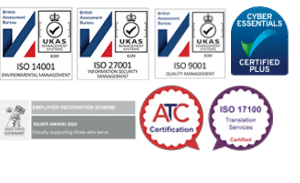All industries across the UK and the globe are having to adjust due to the COVID-19 outbreak. However, the tech industry is taking centre stage.
Tech is increasingly becoming a part of our everyday life and a cornerstone for many businesses to keep running. The tech industry is constantly in a state of development and innovation. This is why it’s important to look at how this outbreak will and has affected the field.
Increased Usage
Whether you’re currently working from home or self-isolating, there’s no doubt that you are using technologies throughout the day. Many have been adapting to new technologies from Zoom meetings to building home offices. Those who previously didn’t need tech professionally are being forced to adopt it.
The important aspect of a new audience getting into tech means that skepticism and fear of the unknown dissipate. This has an effect on the real-life counterparts when the world returns to normal.
For example, those who previously avoided online shopping now have to use it to get essentials. However, they may end up preferring it and therefore continue to use it after the outbreak.
Increased usage also leads to increased demand. This means many tech giants are having to up their game when it comes to practical solutions.
One area where the gaps are showing is amongst the minority and non-English speaking members of the UK. Around one third [1] of coronavirus patients are identified as black, Asian or minority ethnic. Of course, this raises the question of why these communities are more vulnerable.
Are they receiving and importantly understanding the medical advice and information? It could be possible that even with all the technology available, language barriers are getting in the way. Such language barriers put minority communities at a higher risk.
Translation services within technology and communications allow for all to access the right information in order to help stop the spread of COVID-19.
Personal Tech
Home offices are becoming the new norm so it is of no surprise that sales of personal tech, such as laptops, monitors, and game counsels have increased. One of the key aspects of helping people get through these uncertain times is staying social. Now it seems easier than ever to stay in touch with friends, family, and relatives but what if no one explained how?
Many older people are finding themselves totally isolated from friends and family, which can make navigating new technology to stay in touch confusing and stressful. This can be made additionally stressful if you can’t find help/instructions in your language.
The translation of instructions/guides and FAQs play a vital role in allowing Non-English speakers to access the information they need in order to help them use technology in the way they require. Furthermore, with many self-isolated people potentially struggling with mental health issues, access to mental health services both online and over the phone are of vital importance.
Telephone interpreting is an excellent solution in order to aid non-English speakers access to mental health support and be able to talk with a professional in order to receive and understand expert advice and support.
Digital Health Services High Demand
Naturally, people still need to see their Doctors and access expert and accurate medical advice and information. Online health advice and video/telephone appointments are now in more use than ever as the NHS looks to stop the damage from COVID-19.
People need to still be able to check their symptoms against accurate information in order to rule out COVID-19 or know they need to start self-isolating along with anyone else they live with.
Many non-English speaking patients who could previously attend physical appointments would have done so with an interpreter present in the room. Now however 3-way video interpreting is the answer for all non-English speaking patients and users of BSL.
The NHS has been quick to act upon the increased demand from the public and enabling all patients to access online and remote services not only help stop the spread COVID-19 but also help to improve the health and condition of patients who have other illnesses new or on-going. The overall aim of new technology within the healthcare sector is to look after the patient which includes patients who require interpreting services through phone or video.
Translation can assist in reducing the number of appointments and calls being requested, by translating medical information online and FAQs everyone can check their symptoms and read on the best ways to stay healthy. Having this information readily available means that non-English speaking patients don’t need to pick up the phone to try and find someone to talk to about what they need.
Continued Tech Innovation
Higher demand for technologies to provide more online services and remote working capabilities will only lead to more innovation within the tech industry. Furthermore, it will lead to the innovation and skills individuals and companies have with using technology.
DA Languages is no exception, having already installed new Telephone Interpreting capabilities that allow clients to dial directly out from online platforms such as Zoom, Skype, Microsoft Teams, WEBEX, and WhatsApp. As well as introducing 3-way video calling through our own online DA Languages video platform and native app.
In a time where we all need to come together, it’s important to make sure no one misses out because of their language.
If you are interested in any of our services email enquiries@www.dalanguages.co.uk and we’ll be happy to see how we can help!



